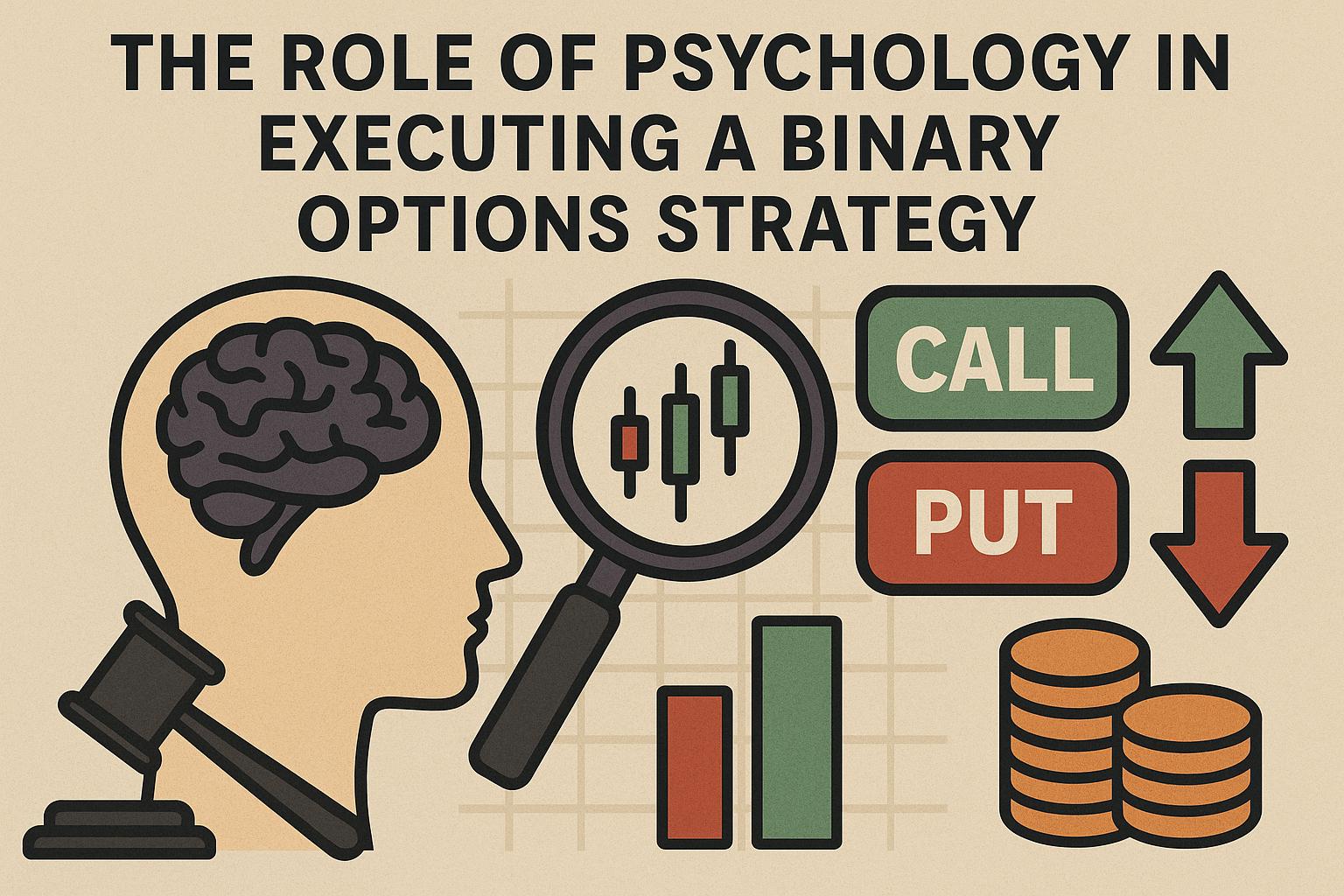The Importance of Psychology in Binary Options Trading
The world of binary options trading is marked by rapid decision-making and a constant stream of data. Traders engage in predicting the direction of asset prices within specified timeframes, making the technical aspects of binary options strategies indispensable. However, equally significant is the understanding of the psychological aspects that govern trading decisions. Psychology, encompassing emotions, cognitive processes, and mental frameworks, can have a profound impact on trading outcomes, often influencing them as much as the technical components.
Understanding Cognitive Biases
Cognitive biases are systematic patterns that cause deviations from rational judgment or norm-based decisions. In the realm of binary options trading, such biases can frequently lead to erroneous or misinformed decisions.
Overconfidence Bias: This bias can be particularly detrimental in trading scenarios, as traders may become excessively confident in their predictive abilities regarding market movements. This overconfidence can lead to engaging in larger and riskier trades without adequate justification or analysis, often resulting in significant losses.
Confirmation Bias: Another common bias is the tendency to seek or give undue weight to information that corroborates existing beliefs or hypotheses. Traders might selectively focus on data that supports their strategies, while ignoring or trivializing information that contradicts their position, potentially culminating in suboptimal decision-making.
Awareness of these cognitive biases is critical for traders, as it enables them to take proactive measures to counteract their effects. Professional traders often implement feedback loops as a tool to identify and correct cognitive biases, fostering a trading environment where decisions are rooted in rationality rather than skewed perceptions.
Emotional Regulation
Emotions are an integral part of decision-making, with fear and greed being particularly prominent in trading scenarios. In volatile markets, these emotions can dominate a trader’s decision-making process, leading to impulsive actions such as excessive trading or the premature closure of positions.
Adopting strategies for emotional regulation is therefore vital. One effective approach is to set predefined entry and exit points, ensuring that trading decisions are guided by logic and predefined rules rather than emotional impulses. Maintaining a trading journal also helps in documenting decisions, serving as a reflective tool that fosters discipline. By staying committed to a consistent trading plan, traders can ensure that each trade is executed based on analysis rather than reaction.
Building Mental Resilience
Mental resilience refers to the ability to maintain composure and a clear mindset even in challenging scenarios. For binary options traders, who regularly encounter market fluctuations and unpredictability, cultivating mental resilience is a critical component of success.
A practical method for developing mental resilience is through simulation trading, which allows traders to practice and refine their strategies without incurring financial risk. This environment enables traders to experience virtual market conditions, honing their skills and decision-making capabilities without the pressure of real-world consequences.
In addition to simulation trading, incorporating techniques like mindfulness and stress management into one’s routine can enhance mental strength. These practices foster a state of calm and focus, empowering traders to navigate market downturns with composure and make thoughtful decisions despite adverse conditions.
The Role of Continuous Learning
The landscape of financial markets is constantly evolving, with strategies that prove successful today potentially becoming obsolete tomorrow. Continuous learning, therefore, becomes imperative for traders to adapt their strategies to ever-changing market conditions.
Staying informed about market news, engaging in webinars, and participating in trading forums are essential aspects of continuous learning. These activities provide traders with updated knowledge and diverse perspectives, enabling them to refine their strategies and stay competitive in the trading environment.
Moreover, exchanging experiences with peers and mentors can furnish valuable insights into the psychological challenges associated with trading. Such discussions serve to develop a network of support, fostering an environment where personal and professional growth is encouraged, and strategies are continuously fine-tuned.
In summary, while technical expertise forms the foundation of binary options trading, the psychological aspects significantly influence the formulation and execution of trading strategies. Acknowledging and addressing psychological factors can lead to enhanced decision-making capabilities, greater discipline, and ultimately, improved trading outcomes. For those interested in delving deeper into trading psychology, resources are available at online-trading-resources.com.
This article was last updated on: September 14, 2025

